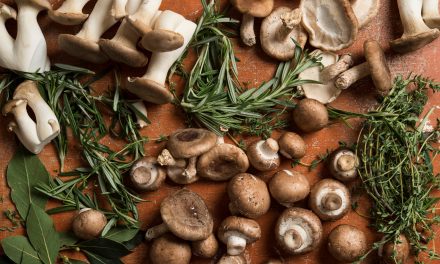Pumpkin belongs to the extensive cucurbit family, which includes more than 850 different species. There are a lot of varieties of pumpkins, and each one is adapted to the needs of the place. Some are sweeter, others blander, with colors ranging from yellow to orange.
Pumpkin deserves a prominent place in autumn and winter cuisine, both for the multitude of dishes it allows to prepare and for its high nutritional value. And all for a small price.
There are many varieties; one of the most common is peanut or violin squash. Inexpensive, eco-friendly, and nutritious, pumpkin has it all!
Select your pathology and inform yourself thoroughly
Asthma
Diabetes MENU
Different types of pumpkin. Properties and health benefits
The nutritional properties of pumpkin
The pumpkin is an accumulation of virtues; on the one hand, it is a rehydrating food (it has a lot of water, approximately 90%); nutritionally, 20% is protein, 70% carbohydrates (the majority in the form of starch and, therefore, of progressive assimilation) and 13% of fats (in the majority polyunsaturated). (Data obtained through the BEDCA database).
In the vitamin and mineral composition of 200 grams of pumpkin, the following stand out:
Most abundant vitamins in pumpkin
Vitamin A
(60% of daily needs)
Pumpkin contains high levels of carotenes, pigments responsible for the orange color, and that the body can transform into this vitamin.
Vitamin A is involved in the vision process and is essential for the proper functioning of mucous membranes, skin, bone growth, reproduction, and the immune system.
Carotenes also have an antioxidant function to protect against cancer, as we will see below.
Vitamin C
(26% of daily needs)
This vitamin is a powerful antioxidant that also regenerates the antioxidant capacity of vitamin E, ordinarily present in vegetable oils and nuts. Therefore, it is a good idea to combine them.
Vitamin C also increases the availability of non-heme iron (present in plant foods); Therefore, in the section “The best recipes with pumpkins” of this article, you will see how our chef Montse Vallory combines pumpkin with legumes (azuki, lentils, tempeh).
Vitamin C is also involved in various metabolic reactions, prevents cardiovascular diseases, participates in liver detoxification, and stimulates the immune system. Depending on the type of cooking, part of the vitamin C may be lost; In the section “The best way to cook a pumpkin,” we tell you how to minimize it.
Vitamin B6 pyridoxine
(20% of daily needs)
This vitamin is essential for the proper functioning of the metabolism because it intervenes in the synthesis reactions of the protein building blocks (amino acids) and the use of sugar (glycogen) and fat reserves.
It is essential to help detoxify the liver and keep the immune system in good condition (in fact, the controversial Actimel bases part of its advertising that it contains 15% of the daily needs of this vitamin).
More abundant minerals in pumpkin
Manganese
(19% of daily needs)
This essential trace element is part of some enzymes (molecules that make chemical reactions in the body possible) necessary to take advantage of sugars, fats, and proteins by cells and is part of an enzyme (SOD – superoxide dismutase) with essential antioxidant functions to protect ourselves against the attack of free radicals.
Copper
(19% of daily needs)
This trace element is involved in the metabolism of another essential element, also, iron. It is an essential anti-infective agent because it favors the generation of antibodies and, if we lack it, it can cause neutropenia (a decrease in a type of white blood cell).
It is essential for the formation of collagen and melanin and, therefore, for the excellent maintenance of skin and joints.
It also has an antioxidant function.
Other interesting facts about the pumpkin
Fiber
(22.6% of daily needs)
Fiber is essential to maintain the health of the intestines for some reasons; because it helps to grow the good intestinal flora (prebiotic effect) because it increases the volume of the stool and reduces the constipation problems it has a protective effect against colon and rectal cancer.
In addition, pumpkin also contains potassium (14%), vitamin B2 (11%), vitamin B9 (10%), vitamin K (10%), vitamin B5 (9.6%) and magnesium (6.6%).
They help lower “bad” cholesterol.
Pumpkin seeds are high in polyunsaturated fats (also called “good fats”), or fats made up of essential fatty acids, such as omega-3 and omega-6. These fatty acids help us regulate the levels of cholesterol present in the blood, preventing its accumulation in the arteries and preventing cardiovascular diseases.
In addition, pumpkin seeds contain phytosterols, which are also very beneficial in reducing “bad” cholesterol.
Prevent prostate tumors and parasites
Pumpkin seeds are an excellent ally to prevent benign prostate hyperplasia, very common in men. In this way, they help treat irritable bladder and urination problems associated with this enlarged prostate. It is believed to be due to its high sterol content and the presence of certain enzymes. [1]
Similarly, due to its cucurbitacin content, this food has been used to fight intestinal parasites, especially tapeworms. Thanks to its properties, this food helps to stop the development of worms in the stomach. In addition, these seeds are rich in fiber, a key element in cleaning the intestine and preventing constipation. [1]
Help strengthen defenses
Pumpkin seeds are rich in iron and zinc, essential minerals to improve defenses and shield our immune system. In addition, due to its high iron content, many nutritionists recommend this ingredient to people suffering from anemia, allowing them to enjoy more energy and vitality.
Contribute to bone health
Thanks to its high calcium and magnesium content, pumpkin seeds help us keep our bones healthy and strong, reducing the impact of diseases such as arthritis and osteoporosis. To achieve better calcium absorption, we must take them with foods rich in vitamin D, such as fish or mushrooms.
If you want to know all the benefits of pumpkin seeds in more detail, take a look at this other article.
Contraindications of pumpkin seeds
There are many benefits of consuming pumpkin seeds, but what if I eat a lot of pumpkin seeds? It would be best if you always took them in a sensible way, since there are specific contraindications that you must take into account, such as:
Stomach problems: pumpkin seeds are rich in fiber, so an excess of this food can cause stomach pain, flatulence, and diarrhea.
Allergies: In some people, pumpkin seeds have been known to cause mild skin allergies or reactions such as eczema and irritations. Given this risk, you should make sure you are not allergic or have an intolerance to pumpkin seeds.
Weight gain: despite being healthy fats, pumpkin seeds have a high percentage of fat. Therefore, consuming them in excess can be counterproductive when it comes to losing weight. How fattening is pumpkin seeds? They provide about 450 calories per 100 grams. We tell you more in this other article: Are pumpkin seeds fattening?
Therefore, eating pumpkin seeds does not have to be negative, as long as you consume them in moderation and combination with other healthy foods, as well as with daily exercise.





